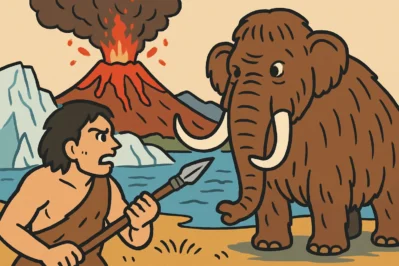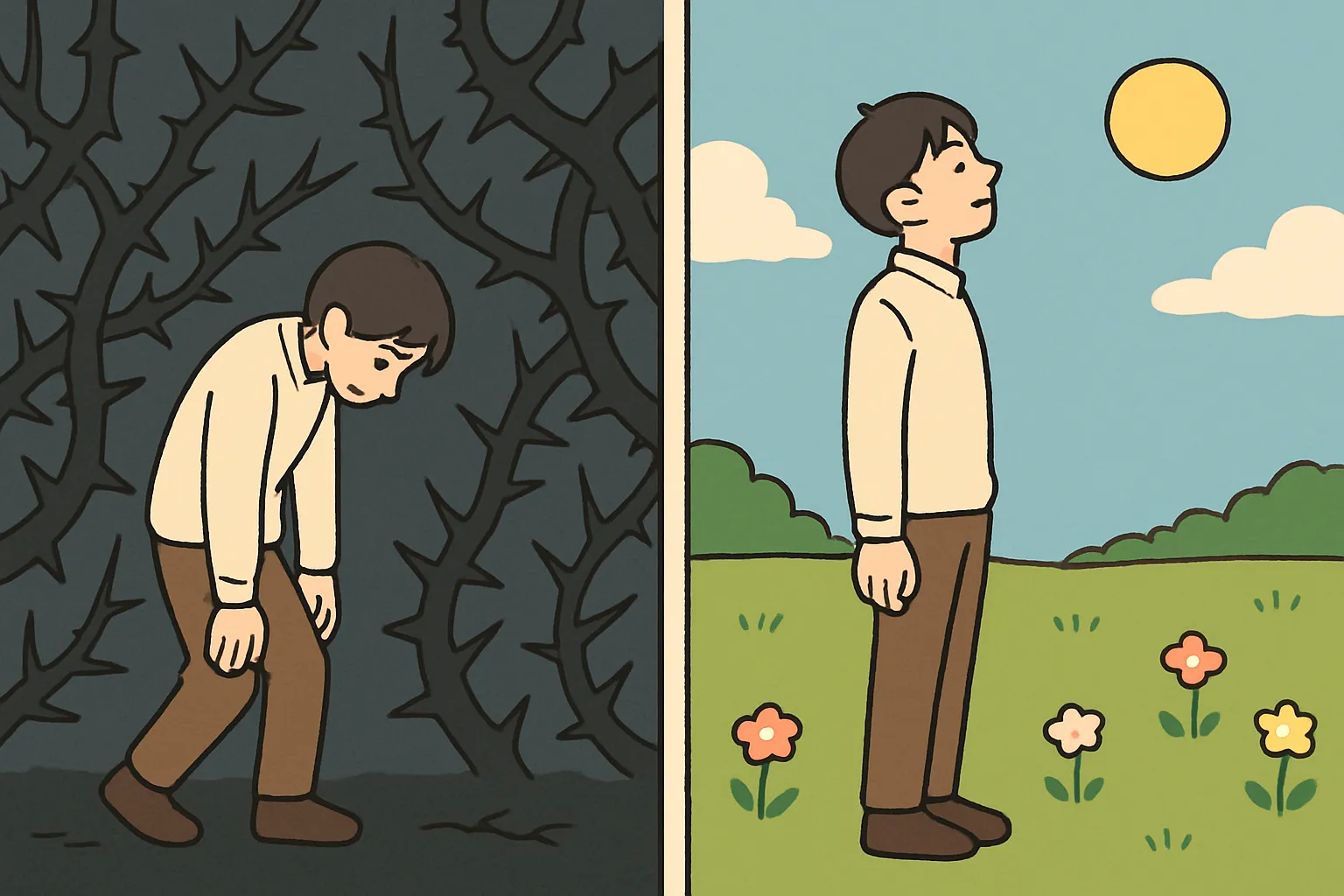Humans vs. Mammoths: Debating an Ancient Mystery in Korean
Hello! Welcome back to [Maeil Hangeul], the place to upgrade your Korean skills!
Today, we’re diving deep—way deep—into the past. We’ll be tackling a fascinating and complex debate: Were early humans responsible for the extinction of megafauna like the woolly mammoth? This isn’t just ancient history; it’s a topic that requires sophisticated language to discuss theories, evidence, and responsibility. In academic circles and intellectual discussions in Korea, debating complex historical and scientific topics is a great way to showcase your advanced linguistic abilities. We’ll learn the exact vocabulary and expressions you need to sound like a native expert as you explore this profound question.
Let’s get started!
Core Expressions for the Great Debate
Here are some essential phrases you’ll need to navigate this high-level discussion.
1. 책임론이 불거지다 (chaegim-ron-i bulgeojida)
- Literal Meaning: The theory of responsibility erupts/flares up.
- English Meaning: The debate over who is responsible arises; The question of accountability comes to the forefront.
- Detailed Explanation: This is a powerful phrase used in formal or academic contexts when a debate about responsibility or blame for a major event suddenly becomes a hot topic.
불거지다means to swell up or protrude, giving the sense that the issue has erupted into public consciousness. It’s perfect for introducing the central conflict of our topic.
2. 멸종에 쐐기를 박다 (myeoljong-e sswegi-reul bakda)
- Literal Meaning: To drive a wedge/nail into extinction.
- English Meaning: To be the final nail in the coffin for extinction.
- Detailed Explanation: This is a highly idiomatic expression. A
쐐기is a wedge or a chock, and박다means to hammer or drive in. The phrase powerfully conveys the idea of a final, decisive action that makes an outcome (in this case, extinction) irreversible. It’s used to argue that while other factors may have existed, one particular factor delivered the final blow.
3. 반론의 여지가 있다 (ballon-ui yeoji-ga itda)
- Literal Meaning: There is room for a counterargument.
- English Meaning: It’s debatable; There’s room for disagreement.
- Detailed Explanation: An indispensable phrase for any C2-level debater.
반론means counterargument or rebuttal, and여지means space or room. You use this to acknowledge a point while politely signaling that it’s not the only valid perspective. It shows critical thinking and is much more nuanced than simply saying “I disagree.”
4. 복합적으로 작용하다 (bokhap-jeog-euro jag-yong-hada)
- Literal Meaning: To act in a complex manner.
- English Meaning: To be the result of a combination of factors; Multiple factors were at play.
- Detailed Explanation: This phrase is key for expressing a sophisticated, non-binary viewpoint. Instead of blaming a single cause, you can argue that various elements (
기후 변화,서식지 파괴,인간의 사냥etc.) interacted to produce the final result. It demonstrates an ability to understand and articulate complexity.
Example Dialogue: A University Debate
Let’s see how these expressions work in a natural conversation between two archaeology students, Jimin and Seojun.
A (지민): 서준아, 최근에 공개된 플라이스토세 거대 동물군 멸종에 관한 다큐멘터리 봤어? 인간 과잉 사냥설에 무게를 싣던데.
A (Jimin): Seojun, did you see that new documentary on the Pleistocene megafauna extinction? It leaned heavily into the human overkill hypothesis.
B (서준): 응, 봤어. 하지만 전적으로 인간 때문이라고 단정하기엔 반론의 여지가 있다고 생각해. 급격한 기후 변화라는 변수를 무시할 수 없잖아.
B (Seojun): I did. But I think it’s debatable whether we can conclude it was entirely due to humans. You can’t ignore the variable of rapid climate change.
A (지민): 물론 기후 변화도 중요했겠지. 하지만 인류의 확산 시기와 주요 거대 동물군의 멸종 시점이 겹치면서 인간 책임론이 불거지기 시작한 거잖아.
A (Jimin): Of course, climate change was important. But the debate over human responsibility arose because the timing of human expansion and the extinction of major megafauna overlaps so perfectly.
B (서준): 맞아, 그 상관관계는 분명 흥미롭지. 내 생각엔 여러 요인이 복합적으로 작용했다고 봐. 이미 기후 변화로 개체 수가 줄어든 상황에서, 인류의 등장이 말 그대로 멸종에 쐐기를 박은 격이 아닐까?
B (Seojun): Right, that correlation is certainly interesting. I believe a combination of factors was at play. Perhaps with their populations already dwindling from climate change, the arrival of humans was literally what drove the final nail in the coffin for their extinction.
Cultural Tip & Deeper Dive
In Korea, discussions about historical and scientific responsibility are not just confined to academia. They often feature in high-quality TV documentaries (like EBS’s “다큐프라임”) and are a common topic for 논술 (persuasive writing) exams for university entrance.
The framework of this ancient debate—humanity’s impact on the environment—is incredibly relevant today. You’ll hear the phrase 인간 책임론 (theory of human responsibility) applied to modern issues like climate change (기후 변화에 대한 인간 책임론). The ability to debate whether a phenomenon is caused by a single factor or if various elements 복합적으로 작용했다 is a hallmark of an educated speaker in Korean society. Using these expressions shows that you can think critically and engage with complex issues, not just order coffee or ask for directions. You’re participating in the intellectual discourse of the culture.
Let’s Practice!
Time to put your new vocabulary to the test.
Practice Question:
Read the statement below and write a short counterargument (1-2 sentences) in Korean, using at least one of today’s expressions.
- Statement: “거대 동물군의 멸종은 100% 인간의 무분별한 사냥 때문이다.” (The extinction of megafauna is 100% due to reckless human hunting.)
How would you respond to this absolute statement? Think about how you could introduce a more nuanced perspective.
Great job today! Grappling with complex topics like this is the fastest way to elevate your Korean to a truly advanced level.
Leave your answer to the practice question in the comments below! I’d love to see how you use these powerful expressions. 다음에 또 만나요! (See you next time!)






